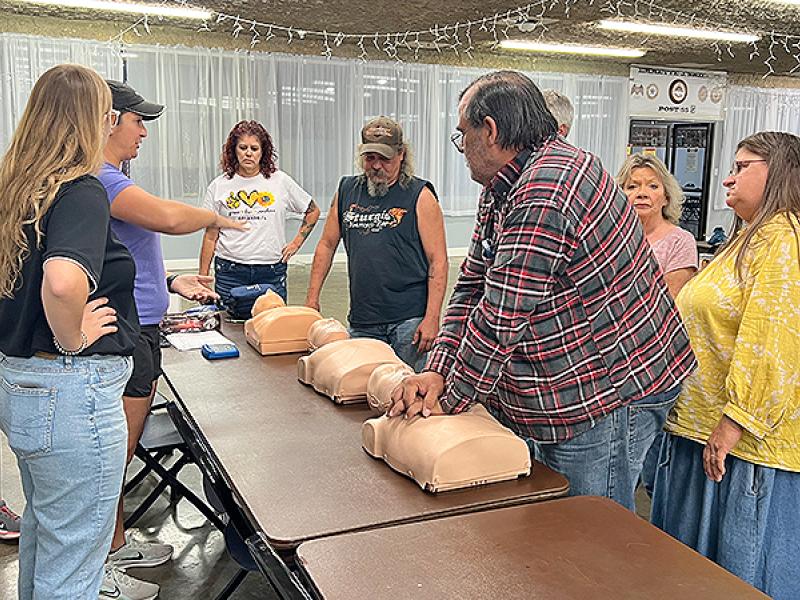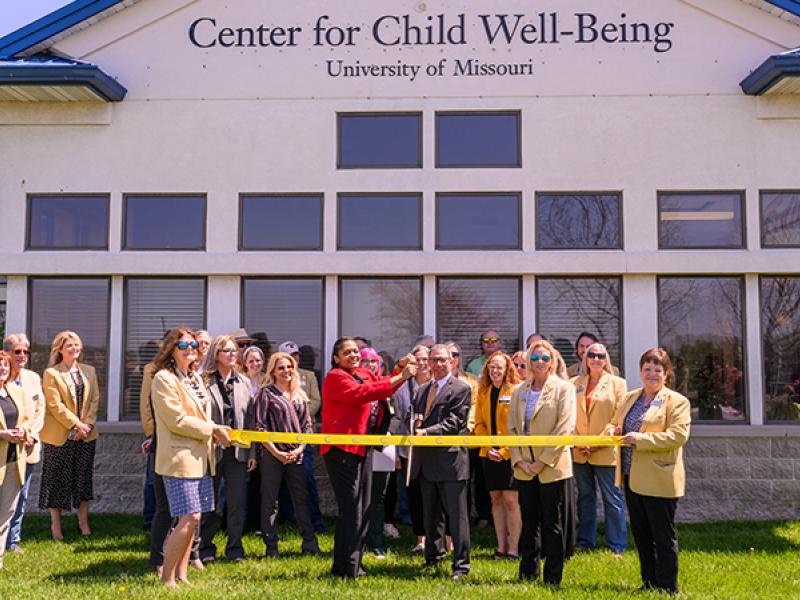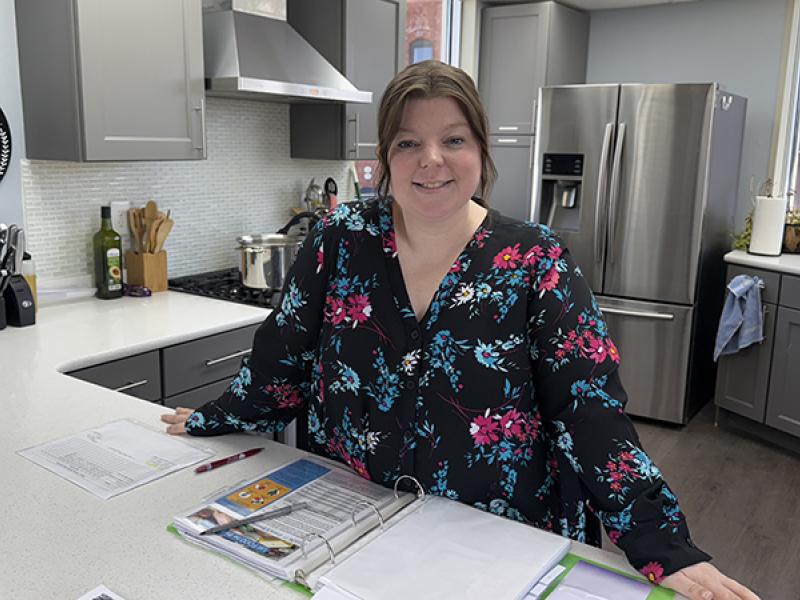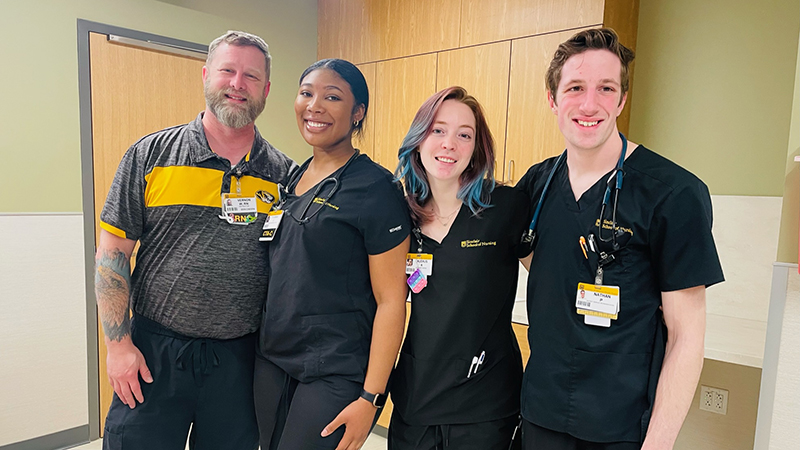
Colon cancer affects 150,000 Americans every year, according to the Colorectal Cancer Alliance. The good news is that early screening and timely colonoscopies prevent 75% of colon cancer cases. However, many patients need support to navigate the process and ensure they complete this crucial procedure.
That’s where the RHRC Patient Navigator program comes in. By pairing nursing students from the University of Missouri’s Sinclair School of Nursing with patients, the program offers guidance every step of the way.
The program is designed to connect patients with navigators who provide personalized support to tackle obstacles such as understanding the steps needed to prepare for their colonoscopy (drinking the prep), confirming appointment time and date, helping them get answers to questions prior to the procedure, making sure they have a chaperone and transportation, and addressing other challenges.
“It was a little bit surprising to me to see how many people fall through the cracks and it's no one's fault, but there just needs to be someone to navigate that and make sure no one is left behind,” said Emma Rayle, a senior nursing student at Sinclair School of Nursing.
The program partners with two health systems, Katy Trail Community Health and the Community Health Center of Central Missouri. Katy Trail became the pilot site for the program in response to challenges with patient attendance for colonoscopy appointments. Later, Community Health Center would join and bring more patients to the program.
Throughout the semester, each nursing student in the navigation program dedicated 90 hours to first learning about CRC screening and then contacting patients and procedural centers to ensure colonoscopies were completed.
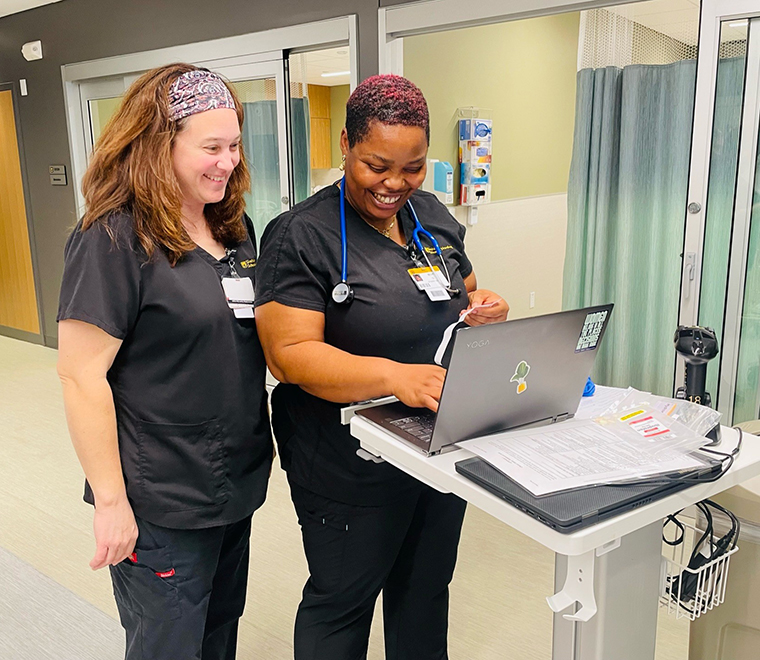
The Patient Navigator program has expanded its reach, guiding a growing number of patients through the colonoscopy process. During its first semester, nursing students navigated 10 patients. With the integration of the Community Health Center of Central Missouri, that number more than doubled over the following two semesters.
"The most important thing is that patients are getting screened,” Project Coordinator and Program Preceptor Chloe Maltagliati said. “Even helping one person is impactful, as it can lead to early detection and treatment."
The program not only assists patients in accessing care but also provides nursing students at the university with early hands-on patient experience, while highlighting the reality of existing obstacles to health care.
“I think it's good for me to see how confusing [the colonoscopy process] can be and where [patients] may need help. Then, I can understand how to better help [patients] when I'm a nurse too,” said Liz Manthe, a senior in the Sinclair Nursing program.
As the semester reaches its final stretch for nursing students, the Missouri Partnership to Increase Colorectal Cancer Screening (MPICCS) team is looking forward to seeing the effects of the program and helping eliminate obstacles to care for patients with colonoscopy appointments.
The Patient Navigator program is a component of MPICCS's broader mission to improve CRC screenings across rural Missouri. Funded by the Centers for Disease Control and Prevention (CDC), MPICCS has partnered with eight health systems and 31 clinics statewide. This initiative is part of the Rural Health Research Center's efforts on collaborating with rural communities to find solutions to health-related challenges.


